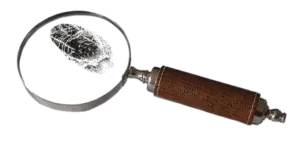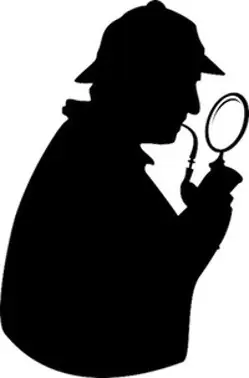How can you tell if your Supply Chain is broken? Do you need a Supply Chain Detective?
Certainly there can be obvious clues: your CEO starts firing and hiring people, consultants are brought in, customers start leaving, or operating and financial performance suffers.
But before the situation gets to those extremes what are the clues that your Supply Chain is not working as well as it could, or should?
Supply Chain effectiveness is absolutely critical for companies in most industries to survive, let alone succeed. And even if your company seems successful now that is no guarantee that it will be in the future.
So detecting those clues and solving these problems is of paramount importance.
The Scene of the Crime!
The Supply Chain can positively or negatively impact competitiveness, growth, profitability, cash flow, customer satisfaction, operating performance and return on investment. That makes Supply Chain a very important part of a company.
But how do you know if your Supply Chain is performing well?
If you have been with a company for a long time you may understand the inner workings of the company’s Supply Chain very well but you may lack the objectivity to assess how well it is working. You know the people, the processes and the metrics. But you may be so invested in the situation that you cannot see the situation without an internal bias.
And if are new to a company you may have that objectivity but you may lack the company specific experience to really know what is going on to make an informed assessment. You have no baggage but you may not understand the intricacies associated with a new company, customer set, and industry.
The great thing about being in the Supply Chain however is that the fundamentals are virtually the same, with some variation, across companies and industries. Most companies have a Procurement function, Distribution, Logistics, Planning, Inventory Management, Product Data Management, and Operations. As such the underlying processes that make all of these functions work are usually based on more or less common Supply Chain principles underneath.
Your Supply Chain experience is invaluable and it is transferrable. So regardless of your situation all of your senses must be finely tuned to the clues that will allow you to assess your Supply Chain.
You must be a Supply Chain Detective!
Bring In The Consultants!
Many of us have experienced this situation. Somewhere along the way your Boss or another Executive will bring in Consultants to determine what is going on.
There are many reasons why the Consultants are called. There may be real problems. There may be a desire for more knowledge, a new direction, or a new strategy. Or there may simply be a lack of trust and confidence.
Whatever situation you find yourself in it is best to support the initiative and look at it as an opportunity to learn and help the overall organizational objectives. I’m sure we have all dealt with Consultants that are good and others that are not so good. But you can always learn something, good or bad, from anyone.
I recall one situation where a new CEO joined the company. In his effort to move the company forward he brought Consultants in to the Supply Chain area, as well as in other functions. There was certainly internal skepticism as to why they were needed but we cooperated in every possible way and gave the Consultants unfettered access to people and information.
At the end of their stint of several months with us they presented their results in a couple of areas specifically.
In the area of Procurement they did a lot of benchmarking and highlighted deficiencies in our materials costing and pricing processes, and the resultant uncompetitiveness and financial shortfall that resulted therefrom. We couldn’t argue with the analyses or results. They searched for all of the clues. And the proposed action plan wasn’t out of the realm of possibility but we didn’t have the foresight to recognize this and do this work ourselves. We didn’t see the clues. We took notice, accepted the results and took action.

In the area of Inventory Management they also did a lot of benchmarking and highlighted deficiencies in our processes. While they did a lot of analyses however they were primarily focused on internal cycle times and manufacturing efficiencies. There scope was more targeted and less holistic.
And there was nothing new in the clues that they found that we didn’t already know. What they did do however was give us a wake up call as to what had to be done. It triggered us to connect all of the clues which we then translated into a game changing action plan.
Discovering the Clues and Connecting the Dots
It is not necessary however to wait for Consultants to come in. And it is also not necessary, or advisable, to wait until your company is in trouble. You can search for clues, beyond the obvious, that will tell you that all or part of your Supply Chain needs a shakeup.
What are some of the clues that a Supply Chain Detective should look for?
- Lack of respect of, recognition of, or confidence in Supply Chain from peer functions or from Executive management
- View of Supply Chain as a necessary evil and an area targeted for cost cutting and not value creation
- Cash constraints, and borrowing money to fund operations and finance inventory
- Lack of a Supply Chain strategy beyond just managing operating expenses
- Poor metric performance (eg. late deliveries, low inventory turnover, large write-offs, uncompetitive material costs, …)
- No benchmarking of Supply Chain performance with competitors or across industries
- Inability to forecast, do what-if analyses and to make and meet commitments
- Lack of end to end visibility across the Supply Chain from Suppliers through to internal operations and on to end Customers, inclusive of Logistics operators
- Inconsistent operating performance between facilities or Operations
- No process based improvement program (eg. Lean, Agility)
- No or nominal investments in Supply Chain improvement
- Poor customer feedback
- Negative positioning as compared to the Competition
- Lack of an effective Supplier Relationship Management program
- Inability to attract, retain, develop and advance Employees, and low morale
- No Sales, Inventory and Operations Planning (SIOP or S&OP) process
- Limited knowledge of general Supply Chain profession advancements, developments, technologies, strategies
- Too many metrics, no targets, and no focus
- Poor leadership
- Inertia
What other clues do you see that characterize a broken Supply Chain?
Any one of these areas is a clue that there is room for improvement in your Supply Chain. Even if your company is successful and a recognized Industry leader, complacency is the beginning of the decline of your Supply Chain effectiveness. Supply Chain is not an area that you can put on auto-pilot. It needs proactive, dynamic leadership.
The Supply Chain Detective in Conclusion
True Supply Chain leaders know what is wrong with their Supply Chains, or they certainly detect it. They are also smart enough to know that they don’t need to have all of the answers themselves. Their teams, their peers, their Suppliers, and their Customers, and yes even Consultants, are all willing participants in helping to identify the clues, be a detective and help to solve the deficiencies.
The most important lesson is that a true Supply Chain Detective, a true Supply Chain leader, is always looking for clues that something is wrong and always knows that there is room for improvement. There is always a strategy, both short term and long term, and the focus is on improving performance and creating value.
Mystery solved!

